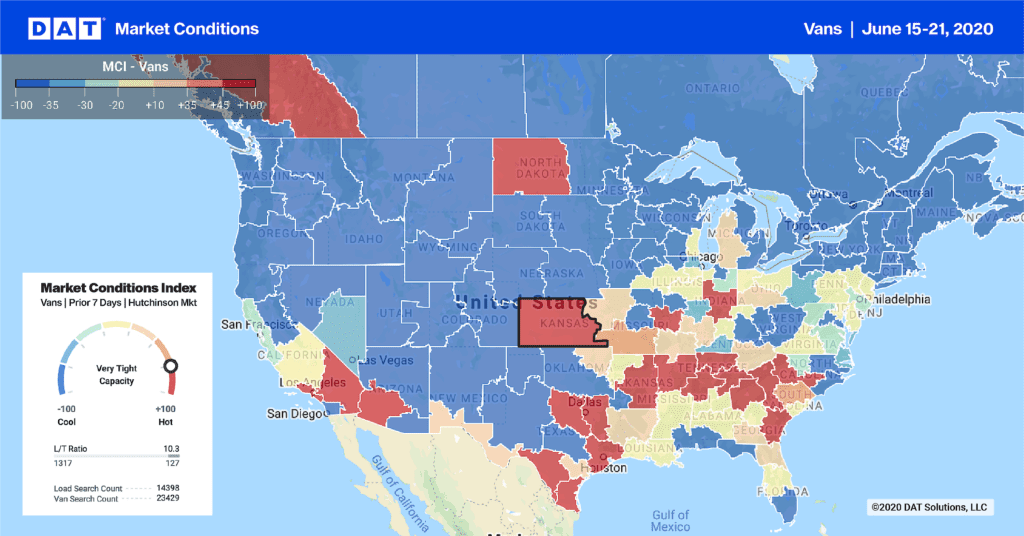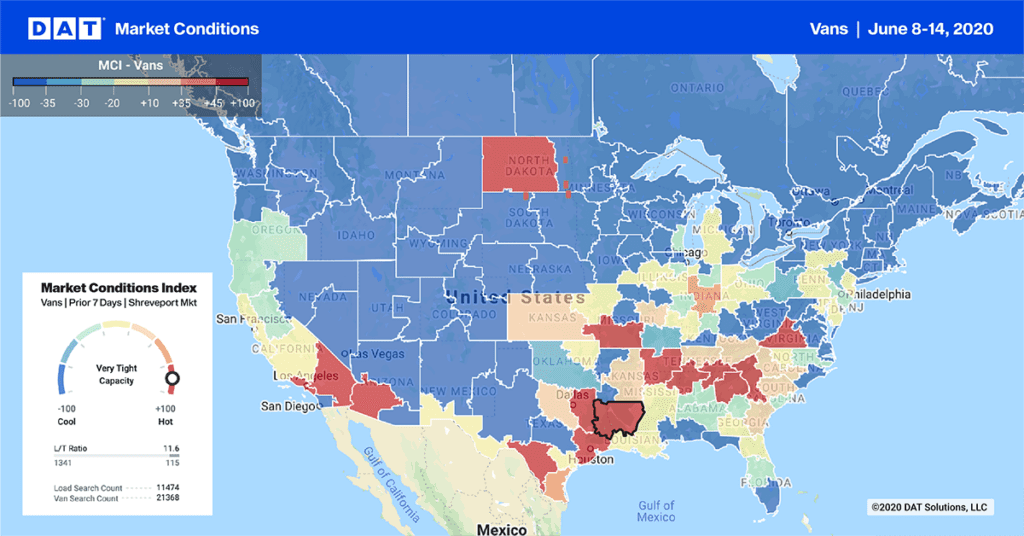Van rates slipped in key markets for the fourth consecutive week, but the national average rate dropped by only a penny to $1.94 per mile. That’s still pretty high, so you might think that the weather is not a big deal. In fact, the extreme weather is hampering economic activity along with freight movements. This whole “polar vortex” could really curtail GDP growth in the first quarter.
Rates dropped 7¢ outbound from Philadelphia, to $1.80 per mile, including fuel. Vans departing Buffalo averaged $1.87, which is 6¢ less per mile last week compared to the week ending January 18. Columbus rates slipped 9¢ in icy weather, landing at $2.04. Memphis rates lost 7¢ to $2.22, which is still a good rate if you can get a decent back haul.
Rates rose on the West Coast, Stockton adding 2¢ and L.A. and Seattle each gaining a penny per mile. Back haul rates across the country also rose to compensate for declining rates in high-volume lanes.
The weather has been driving a lot of spot market freight activity, with many loads were cancelled and re-scheduled. That kept load posts high on DAT Load Boards until last week, when they dropped 11%. That includes a 16% decline in available van loads and a 17% drop in reefer loads. Flatbed loads dropped only 4.4% week over week. This is totally normal for January, from a statistical point of view, but it’s not normal for the weather to disrupt freight movements to such an extent, week after week.
The Southeast was slammed by Winter Storm Leon this week, icing roads from central Louisiana to the Florida panhandle, and up the East Coast as far as Virginia. Roads in Atlanta were so bad that drivers and passengers were stranded in their vehicles, while the lucky ones spent the night in stores or schools. By Friday, this may be nothing but an unpleasant memory, but meanwhile, it would be wise to postpone non-urgent travel to the region.
Port closures have introduced kinks into the supply chain, as well. This week, port activities are suspended in Houston, New Orleans, Mobile and Charleston. These ports handle container traffic to and from South America and Europe, and they serve some of the largest population centers on the continent. Airports have been closed intermittently as well. Most recently, Chicago’s O’Hare was shut down and thousands of flights cancelled. Some of those flights carry freight, too.
Keeping warm can be a challenge in sub-zero temperatures, and diesel prices jumped 3¢ a gallon nationally last week, too. Areas hard hit by the winter weather are seeing steeper increases; the average for the Northeast was up 8¢ to $4.14 a gallon last week. I won’t be surprised if prices continue to rise until warmer weather allows storm-ravaged areas to recover.
My advice: Stay safe out there, and keep checking DAT RateView for the latest updates on rates in your lanes. If you need a load or a truck, go to DAT Load Boards. Keep warm, and drive carefully.
Photo credit: Minnesota Dept. of Transportation



